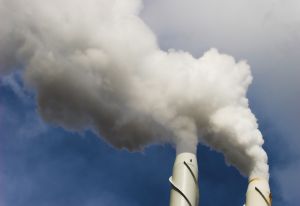"Many economists agree that carbon pricing is the most efficient method of reducing greenhouse gases, and that the upcoming Carbon Tax is a sensible first step," senior Charles Sturt University (CSU) economist, Professor Kevin Parton, said
Professor Parton believes the overall cost of the tax will be fairly low.
"The Australian Treasury has estimated that the short-term impact for the average household is about $9.90 per week, and the average household will be more than fully compensated for this cost by reductions in income tax and transfer payments introduced by the federal government," Professor Parton said.
"The Treasury also estimated the impact of the carbon tax will be between one-quarter and one-third of the impact of the introduction of the Good and Services Tax (GST)."
Professor Parton is certain that there will be issues around the complexity of the tax, especially as around 500 very different organisations will be taxed under the scheme.
"At the high end, a single firm accounts for more than four per cent of carbon emissions, while the top six firms combined account for about 20 per cent of total emissions, or an amount roughly equivalent to the whole of agriculture, which is excluded from the scheme," he said.
"At the lower end, around 190 landfill sites together account for 2.5 per cent of emissions. Establishing carbon pricing rules for these very different sized enterprises is complex, the legislation is not straightforward, and as time proceeds we can expect anomalies to arise."
Professor Parton believed the overall impact on emissions will probably be small at the start.
"The largest carbon emitters are the electricity generators, which may make little change in their generating operations at the outset. However, they may purchase offsets to avoid paying the carbon tax, and this will reduce net emissions," he said.
The CSU expert with the University's Institute for Land, Water and Society believes Australia’s action will encourage other countries to consider policies to combat climate change.
"Australia lost some momentum in international negotiations when the Rudd government was unable to introduce its proposed Emissions Trading Scheme back in 2010," Professor Parton said.
"The nation can regain this lost ground when it re-joins the 38 nations that currently have a carbon price.
"A future international agreement is the single most pressing requirement for reducing global greenhouse gases to non-critical levels.
"It is important that Australia, as a major partner, is at the forefront of negotiations to forge such an agreement if we are to obtain a future international arrangement that is suitable to our objectives for economic, social and environmental sustainability."










